If only 10% of your WeChat followers read each article you are still probably doing better than you think.
Both WeChat & Weibo have reached maturity making them a real challenge for marketing teams all over China, but the data clearly shows there are ways you can win.
KAWO analysed 20 million data points to answer every marketers top questions.
Why We Made This Report
Every week we get asked the same questions from clients…
- Is engagement declining on WeChat & Weibo?
- How many WeChat articles should we publish?
- How often and at what time should we publish?
- How can we get better results?
These are all great questions and as a tech company it is in our DNA to use data to find the answers.
Over the past year we’ve also seen some updates to WeChat and we wanted to see if data could show us how these changes have impacted our customers.
JUNE 2018
Subscription OA Feed
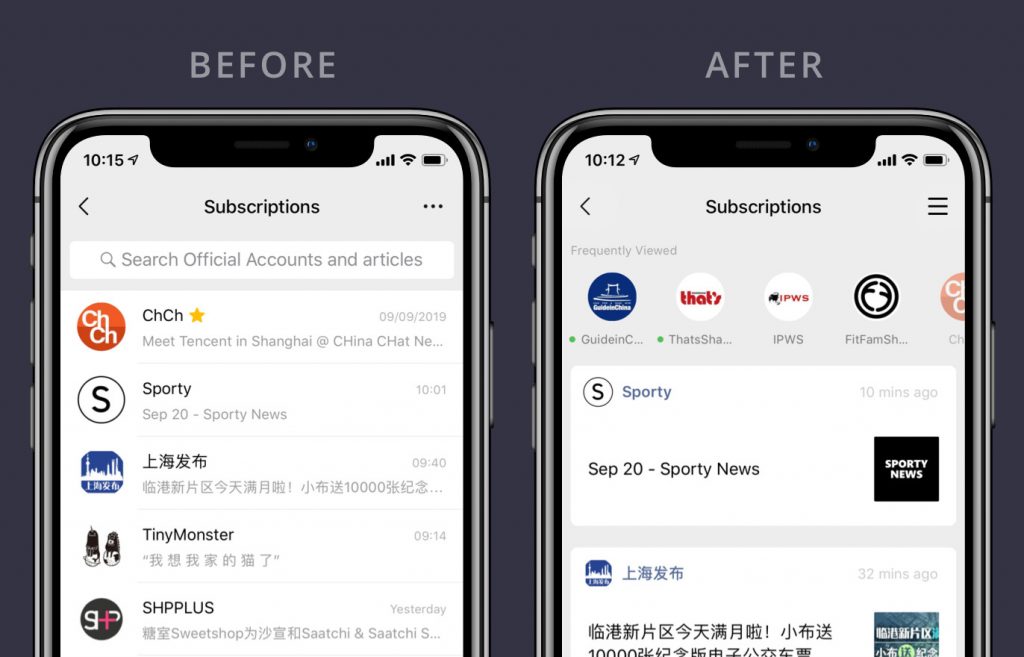
DECEMBER 2018
Wow & Top Stories
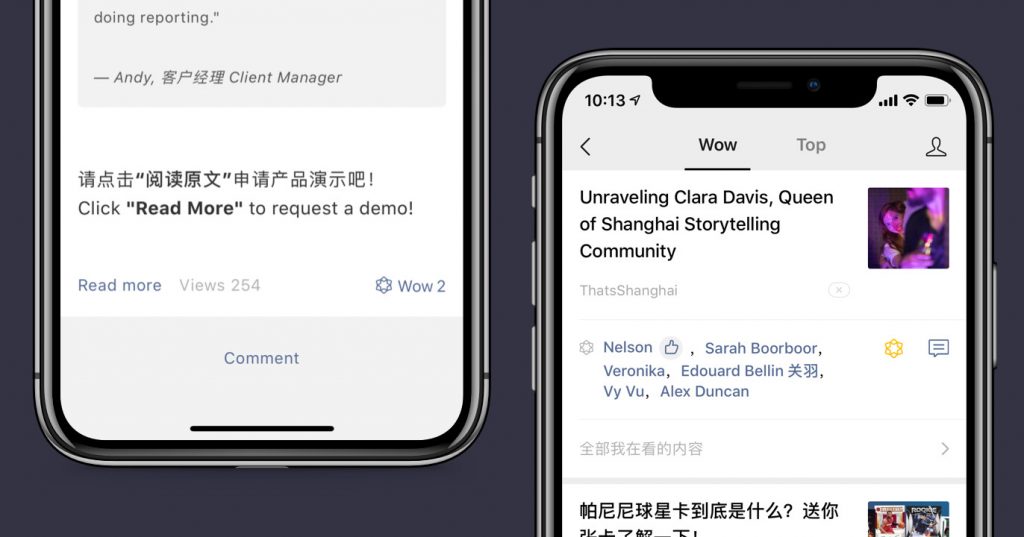
How We Did This Analysis
Our CTO Brian captured a snapshot of our database. We take security and privacy very seriously so we removed all identifying information because for this report we’re not looking at specific customer case studies, just general trends in the data.
We did a quick examination of the data and found there were lots of anomalies or outliers that we needed to remove to avoid them corrupting the general trends. After all this cleaning we were left with 20 million data points relating to over 500,000 posts published to WeChat and Weibo between August 2016 and July 2019.
To help us compare accounts of different sizes we used the metric “reach”:

QUICK DISCLAIMER
Because KAWO is an enterprise software company that works with mostly international brands the trends you see here might not be representative of Weibo and WeChat overall.
QUESTION ONE
Is it Getting Harder to Gain Followers?
Answer: Yes, but it’s not all bad news.
According to Tencent’s statistics there are now over 20 million WeChat Official Accounts. We wanted to find out: has this increased competition made it harder for accounts to gain followers?
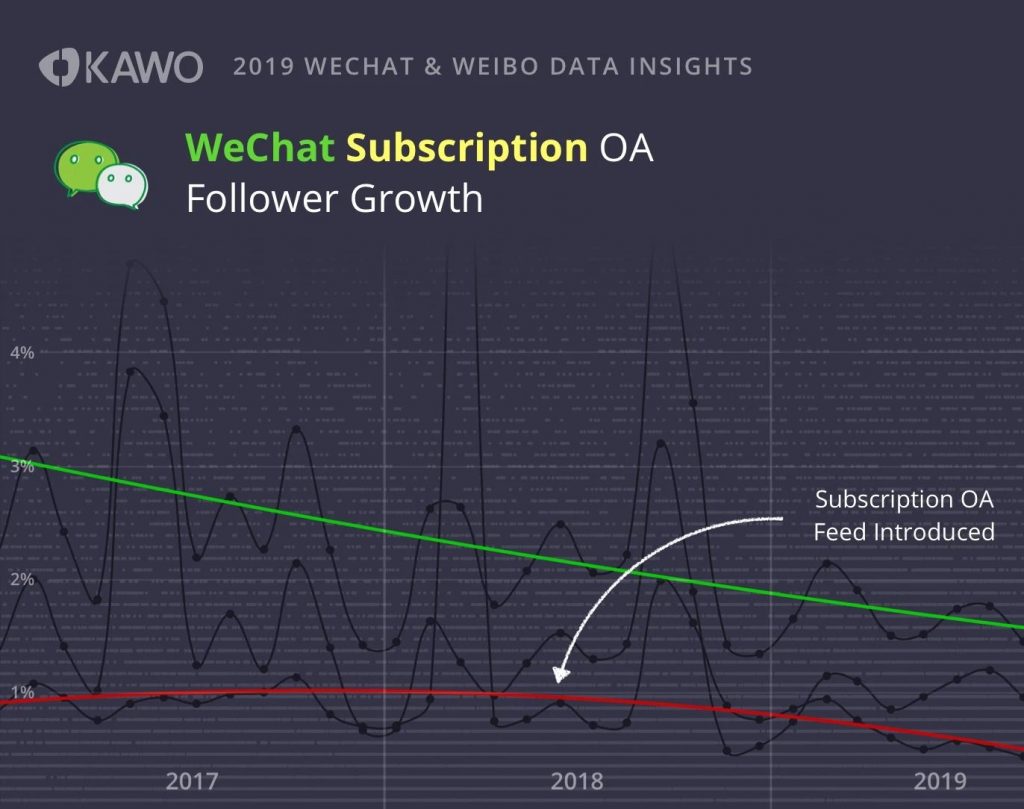
Follower growth on Subscription accounts has fallen quite a lot over the past 3 years, but seems to have been helped a little by the changes WeChat made to the Subscription folder in June 2018. Although the growth rate has slowed, they are now also losing less followers too presumably because it’s less annoying for users to scroll past an article they don’t like rather than open each subscription account one by one.
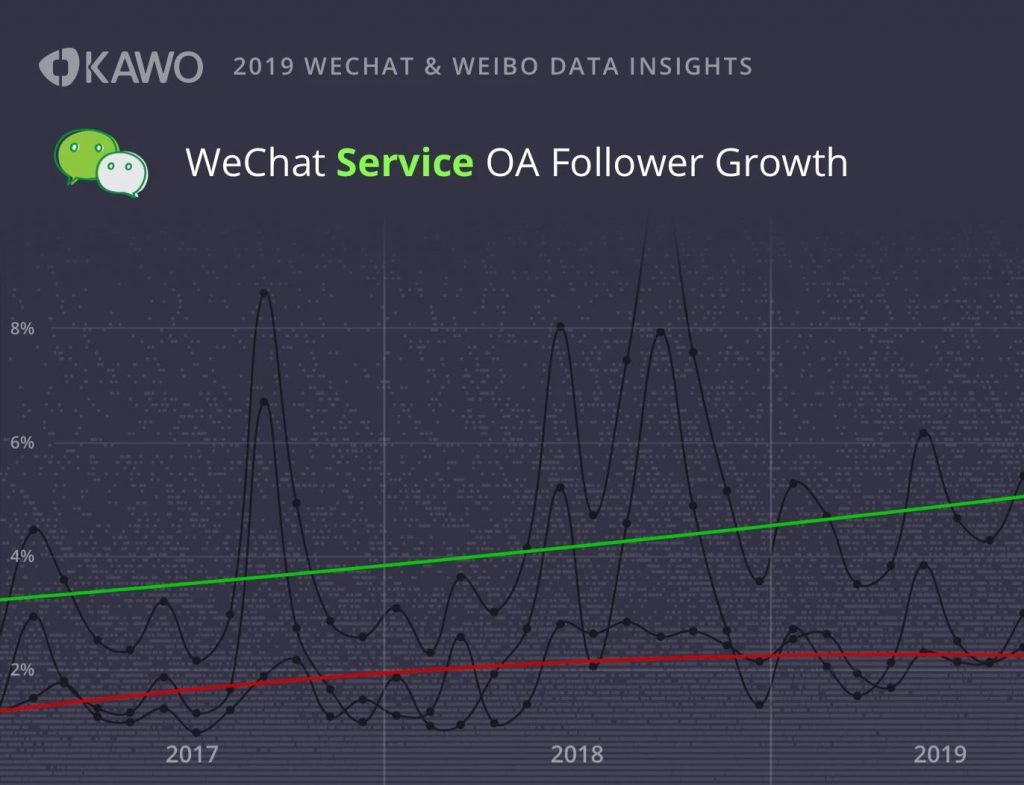
We were surprised to find that the WeChat Service OAs connected to KAWO have actually seen an increase in the rate of follower growth. Sadly they’ve also seen an increase in their unfollow rate leaving the overall net growth only up slightly.
QUESTION TWO
Is Engagement Declining?
Answer: Yes, but it seems to have stabilised.
We’re in the age of content overload. Everyone seems to have an official account and is churning out content, but users still only have so much time to read it. We expected to see WeChat and Weibo suffer with platforms like Douyin and Xiaohongshu on the rise.
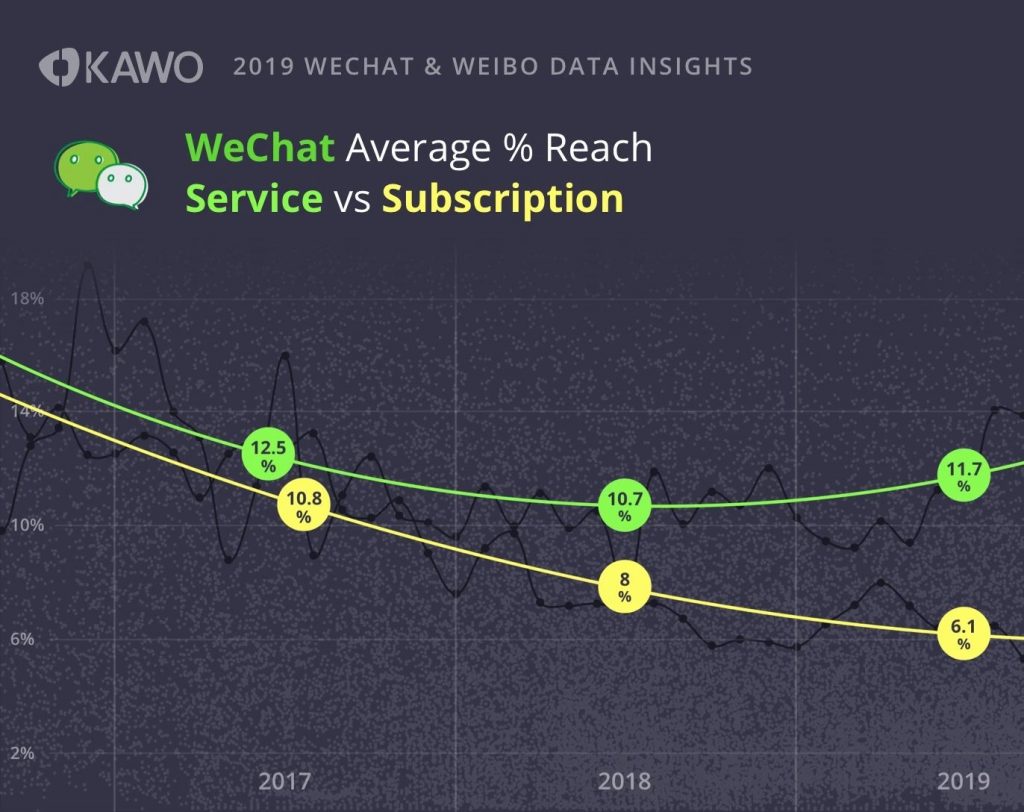
As expected read rates are down significantly, but seem to have stabilised and even picked up a little in the case of service accounts.
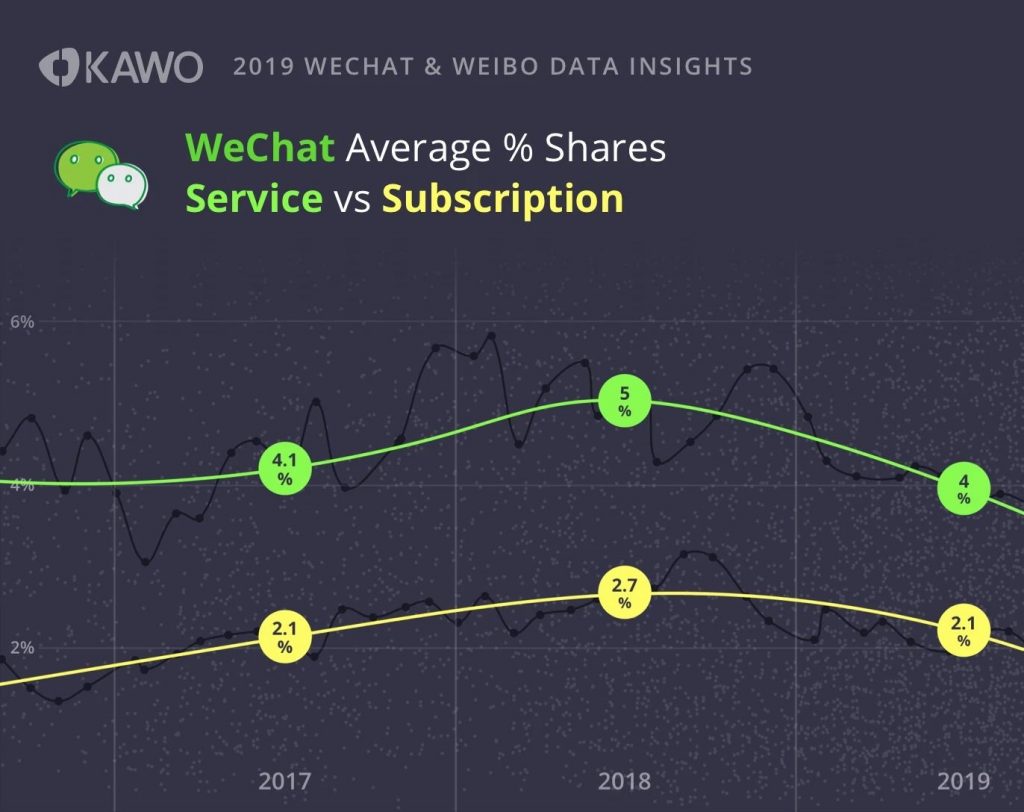
While read rates are down its great to see that shares haven’t suffered a similar fate, rising 20% in 2018.
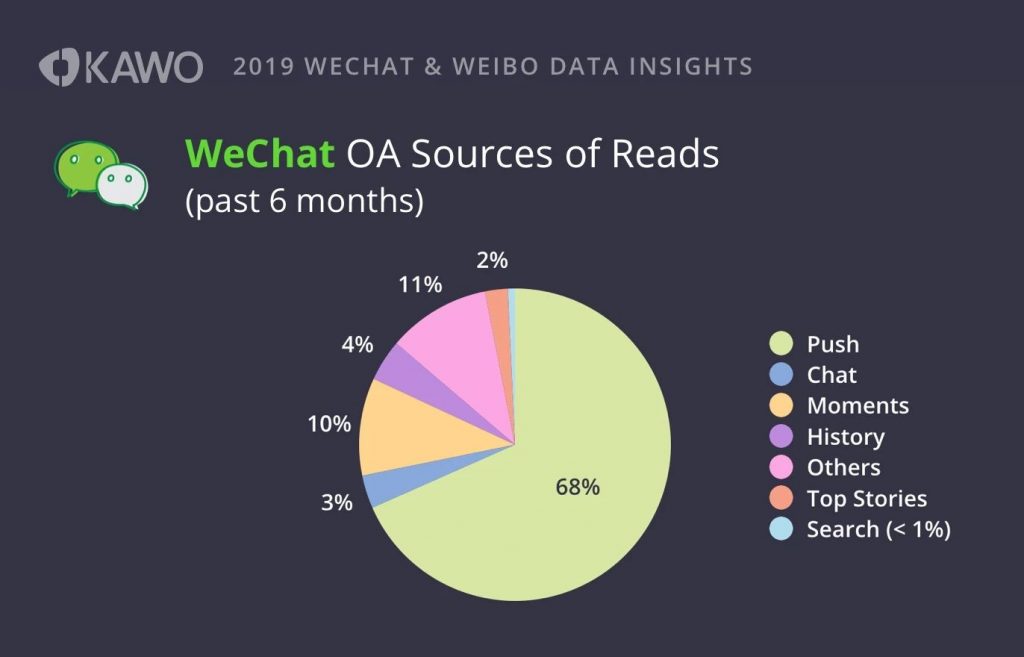
Most accounts get the majority (68%) of their reads from pushing content to existing followers. The remaining 32% of reads mostly come from sharing on moments (10%), in chats (3%), history (4%) and others (11%). “Others” is typically desktop usage or non-official types of promotion by sharing the direct link to the article. This breakdown is fairly consistent between Subscription and Service accounts.
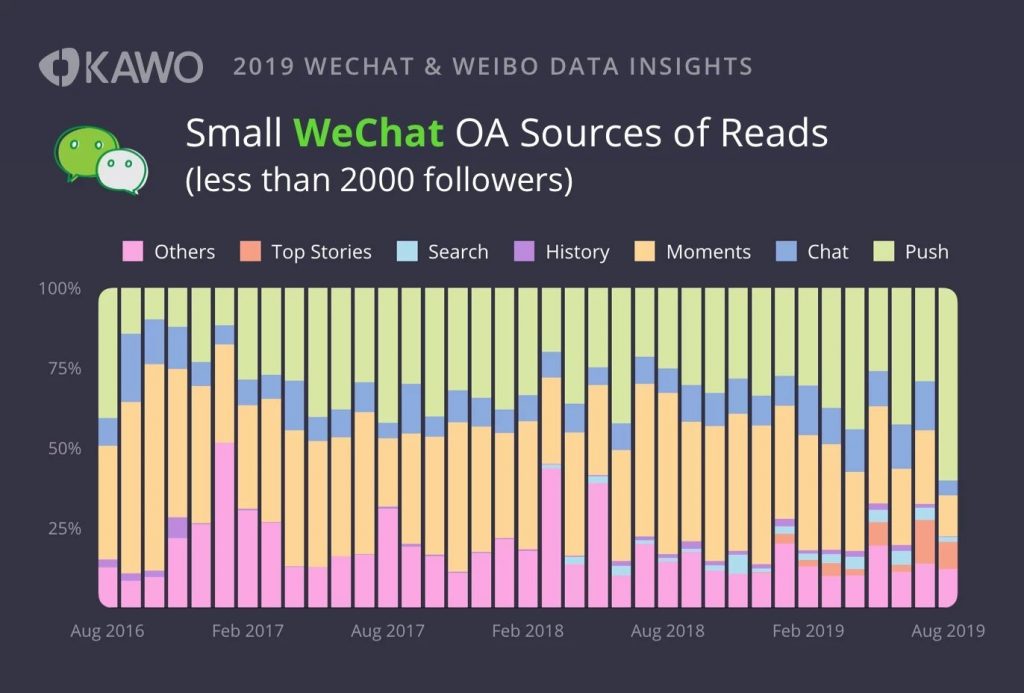
Smaller accounts (less than 2000 followers) get a lot more of their reads from sharing.
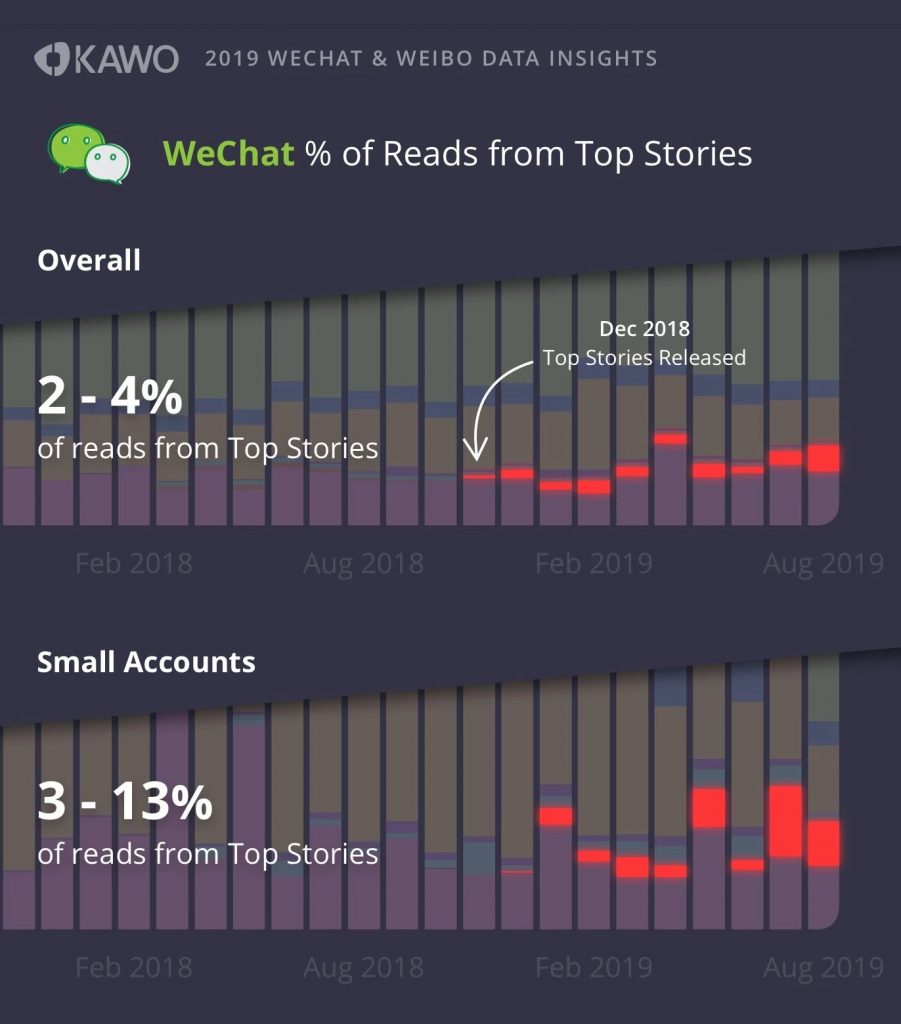
Top Stories has grown significantly since it was launched in December 2018, but is still quite small for most accounts. Accounts with less than 2000 followers have seen as much as 13% of their reads from Top Stories. We’ll continue to monitor this closely and see how it develops as users become more familiar with the feature.
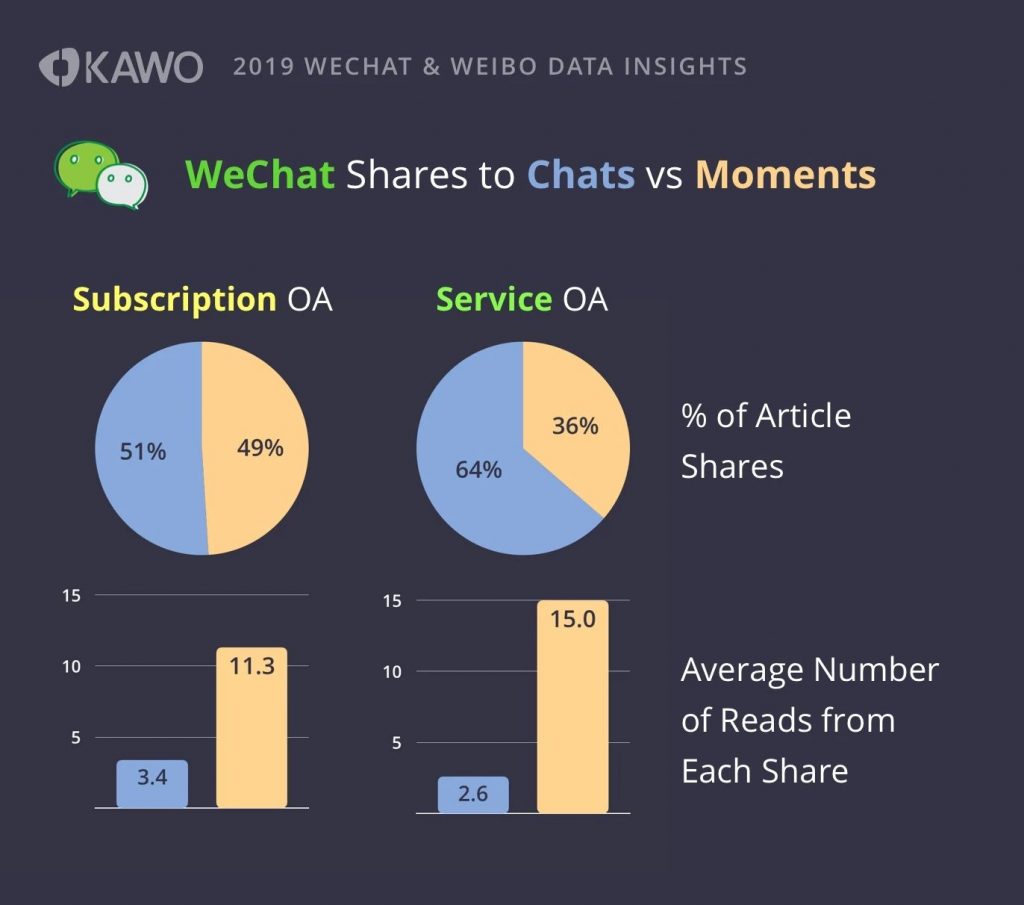
The articles of Subscription accounts are shared pretty equally to chats and to moments while service accounts see a higher percentage of shares to chats. Conversely Service accounts get an average 15 reads from each share to moments, much higher than the 11.3 for Subscription accounts.
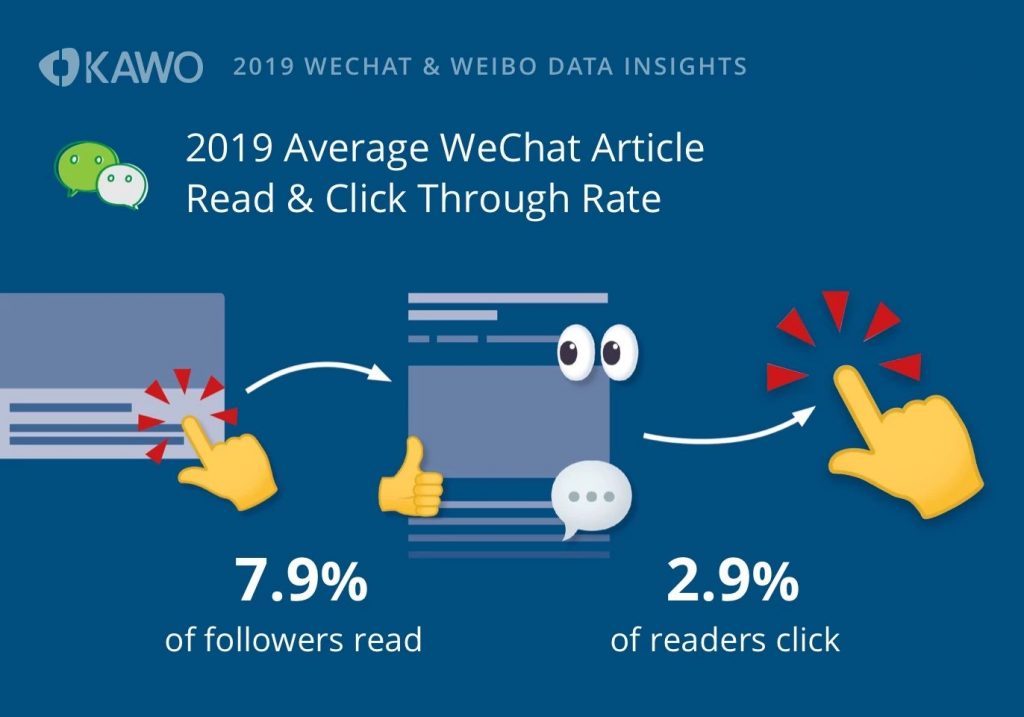
Last year we published our Ultimate Guide to WeChat Articles that engage and convert. In 2019 the average CTR of the “Read More” link at the bottom of WeChat articles fell 17% down to 2.9%.
QUESTION THREE
How Often Should We Publish?
Answer: For Weibo 2-4 times per day and WeChat only when you have some great content to share.
Many teams have a KPI to create a certain amount of content each month. We wanted to find out how often the average WeChat and Weibo accounts push content to their followers.
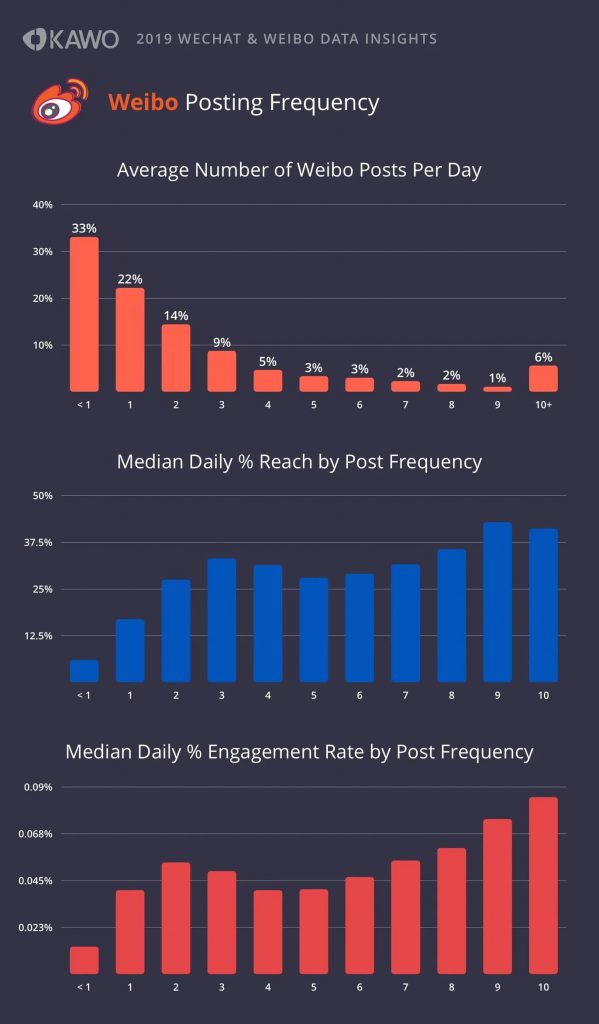
With no limit how often you can publish to Weibo as you would expect the distribution is much wider. Over 50% of accounts publish an average of once per day or less, but according to the data the best ROI seems to be 2 – 4 posts per day. We suspect the dip around 5 – 6 posts could be from teams prioritising quantity over quality. Meanwhile towards the right of the graph creating more posts eventually yields higher results by dominating your users feeds.
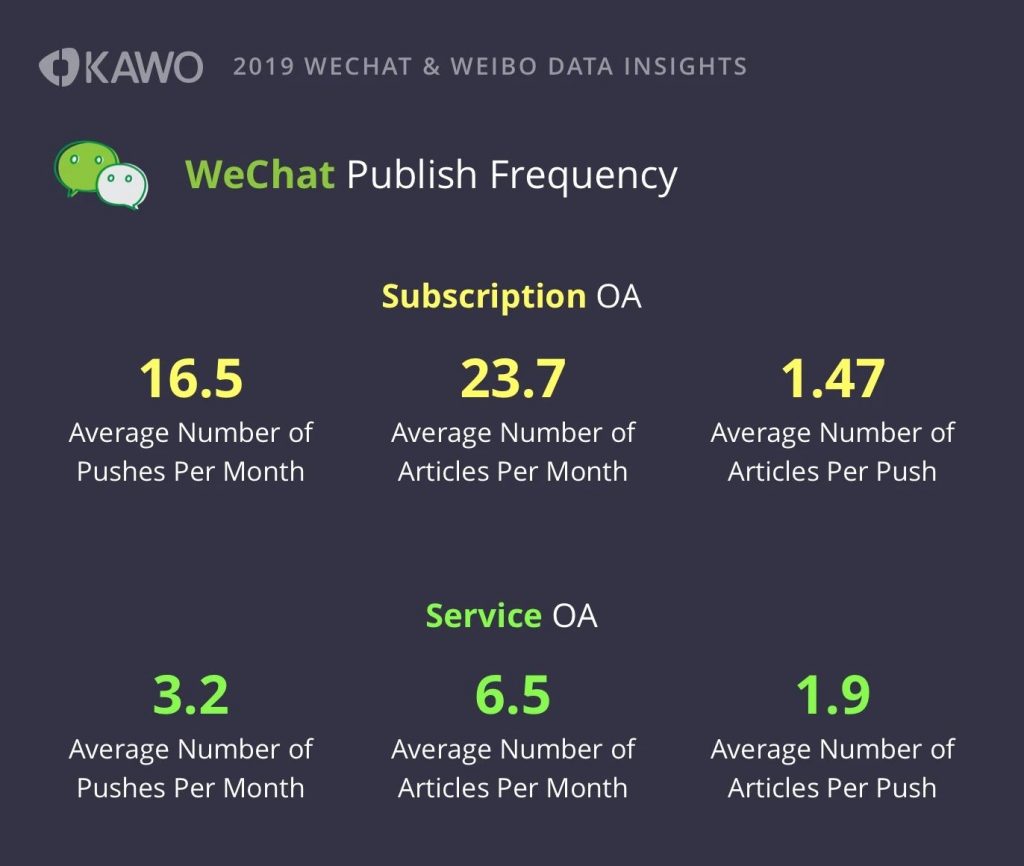
The average Subscription account doesn’t seem to be held back by the limit of 1 post per day. Meanwhile Service accounts send a higher number of articles per push presumably because they’re only able to contact users 4 times per month.
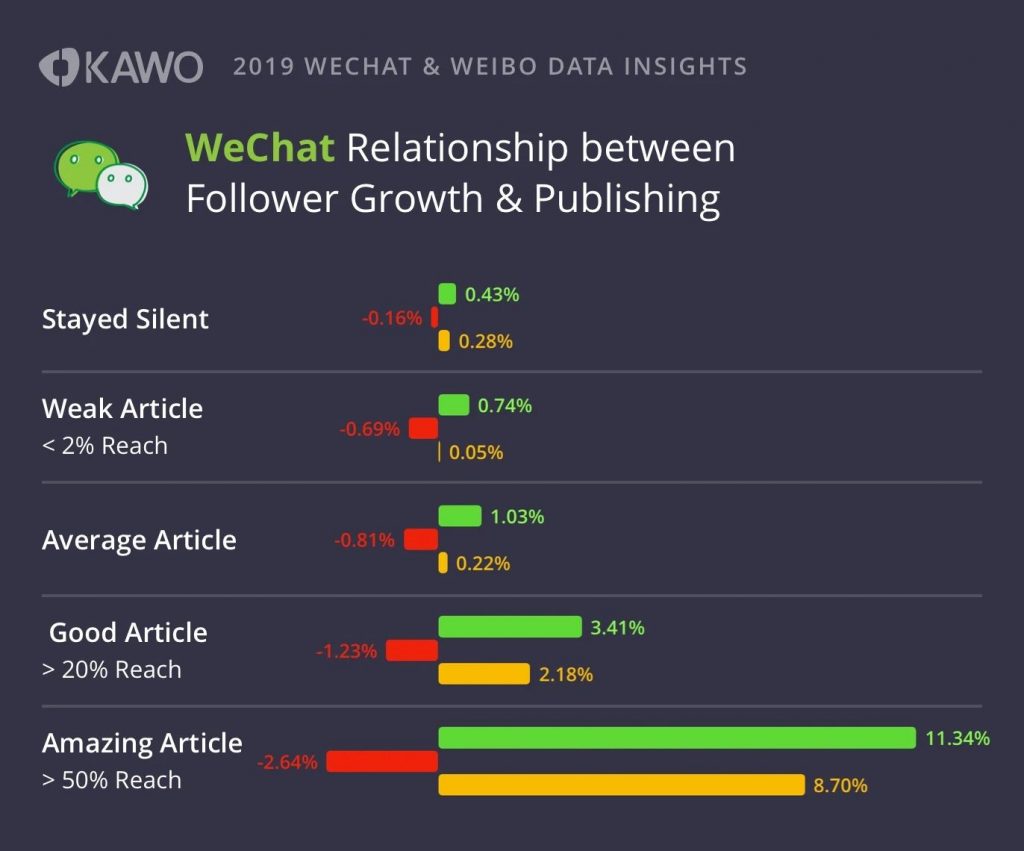
We were pleasantly surprised by how clear the correlation is between creating great content and gaining more followers. Conversely WeChat OAs would be better staying silent than pushing out a weak post. Content is King!
QUESTION FOUR
When Should We Publish?
Answer: Great content will always do well, but aim for early morning before everyone gets up or late afternoon as they get off work.
We had the most fun analysing this data and seeing the interesting patterns thoughout each day.
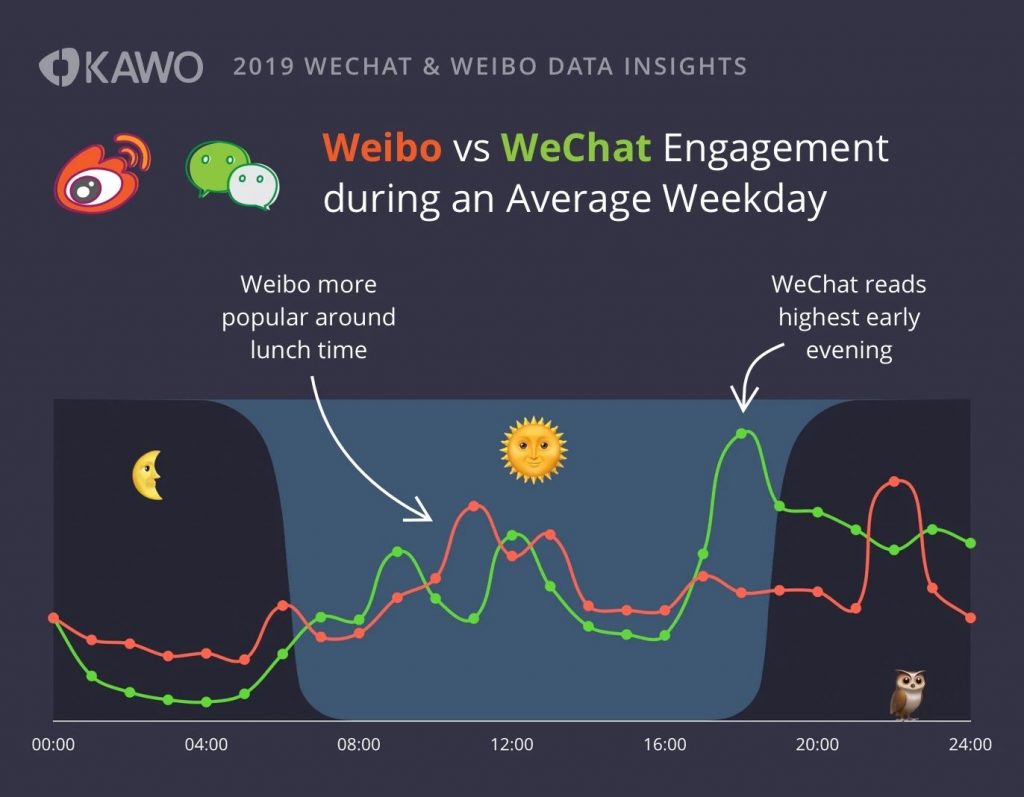
Everyone seems to check their phones in the morning soon after they wake up, Weibo peaks around lunchtime and WeChat articles get read more in the early evening.
NOTE KAWO already provides an AI powered prediction specific to your account suggesting the best times to publish.
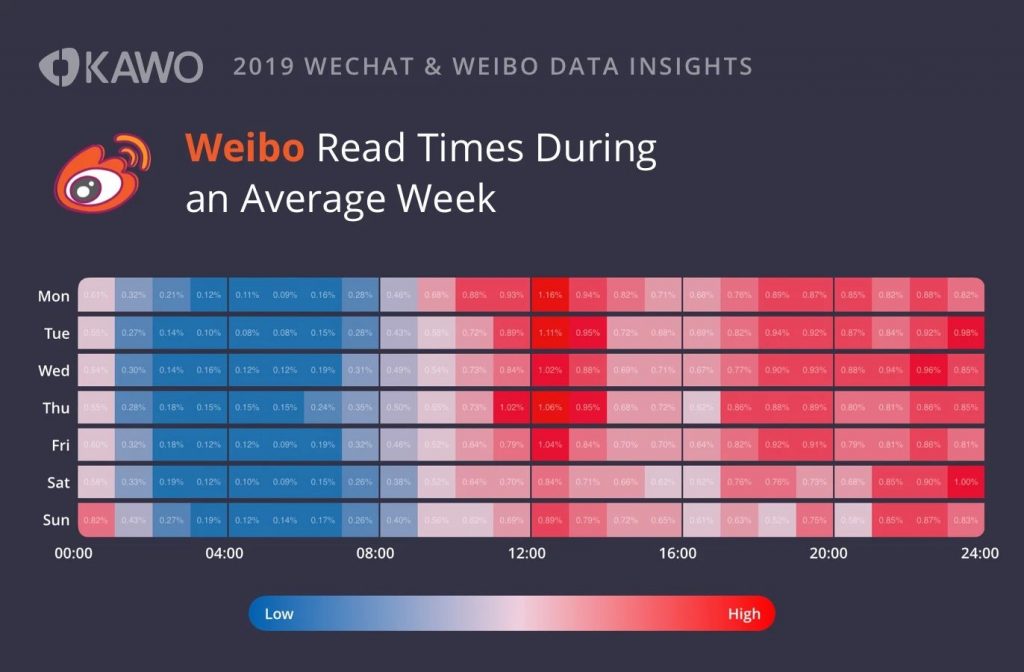
Monday mornings are much stronger on Weibo presumably as users catch up on news they missed over the weekend. People seem to wake up later on weekends and are also active later in the evenings too.
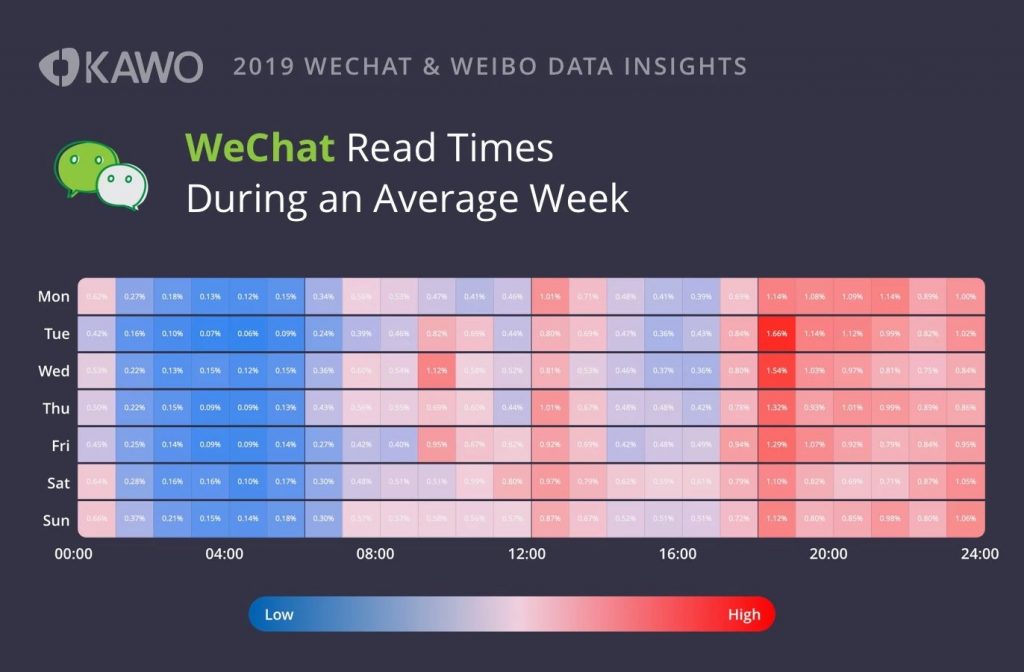
WeChat usage is more consistent throughout the week and only a little lower on Weekends. 5pm and 11pm are clearly the best two publish windows of the day.
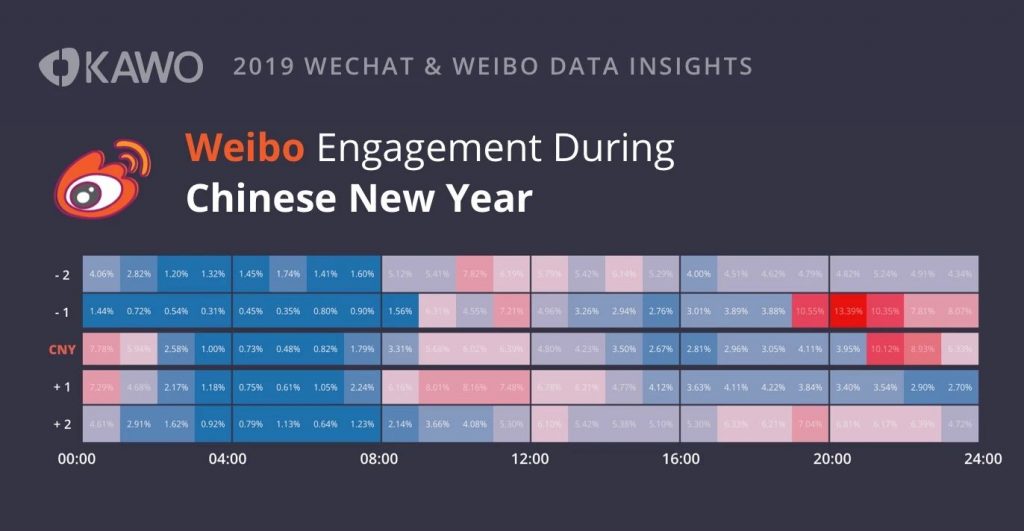
Usage in the week before and the week after Chinese New Year is higher with users presumably spending more time on social media while things are quieter at work. Engagement is down during the day while people spend time with family and peaks in the run up to New Years’ Eve because of the nation-wide participation of the New Year’s Gala’s Activities.
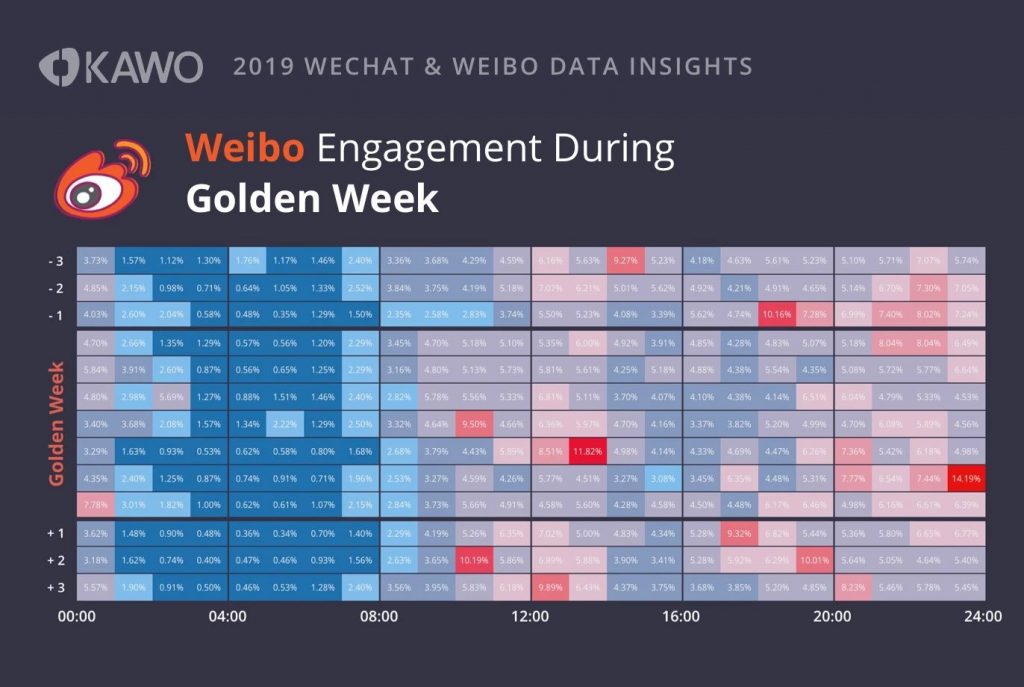
Engagement is up 10-15% the week before and after Golden Week, but down during the holiday itself as users are presumably off doing better things.
Tips: KAWO’s machine learing can suggest the optimal time for posting. Learn more >>
QUESTION FIVE
How Many WeChat Articles Should We Publish?
Answer: Ideally only one, anything more than that isn’t really worth it.
We’ve always seen that the top article gets the most attention and WeChat have made frequent changes to the way it looks, but what about the others? Is it worth going to the effort to create multiple articles?
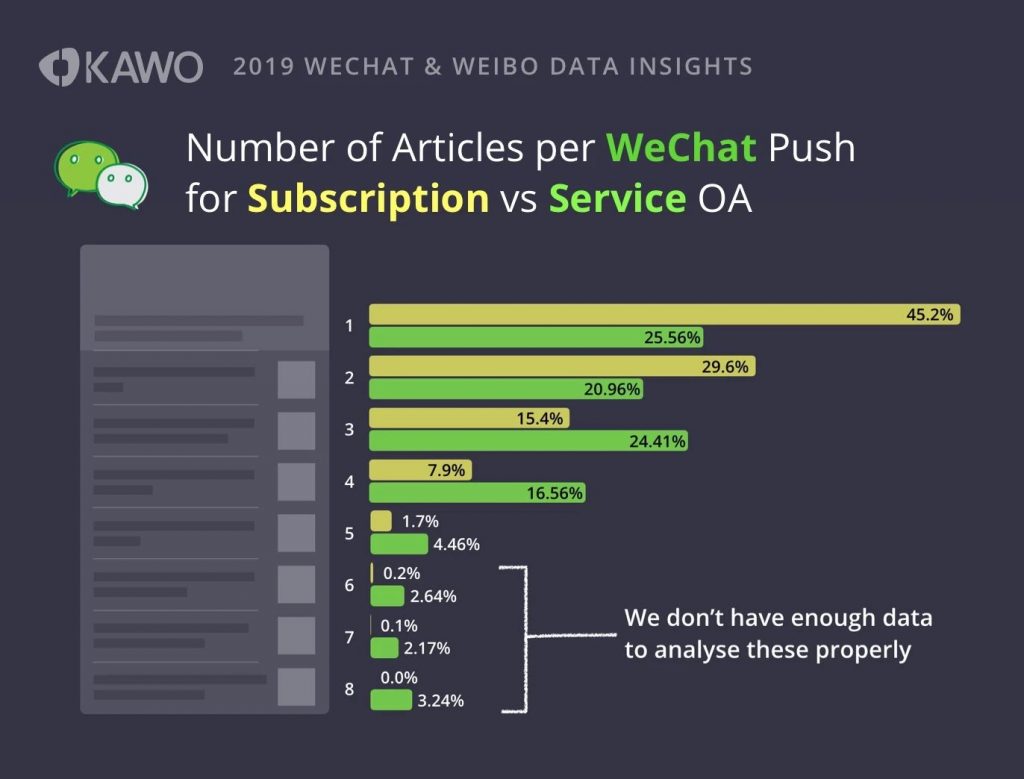
As we saw earlier on while Subscription accounts mainly publish 1 or 2 articles Service accounts are more likely to send multiple articles. Very few accounts bother with more than 5 articles.

While you end up getting more total reads sending more articles divides your users attention so publishing one article remains the best return on investment of time spent.
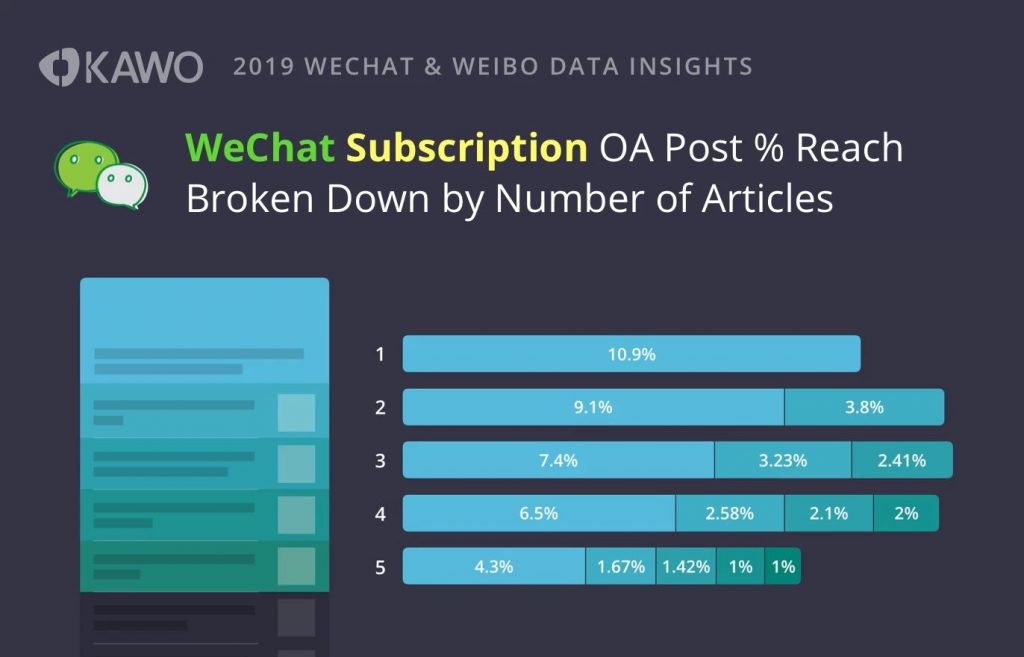
Unsurprisingly 1st and 2nd articles get most of the reads this is not surprising after last year’s changes to the WeChat Subscription feed.
QUESTION SIX
How Can We Get Better Results?
Answer: Focus on quality of content, not quantity.
We’ve always encouraged our users to prioritize quality over quantity and the data strongly supports our argument.
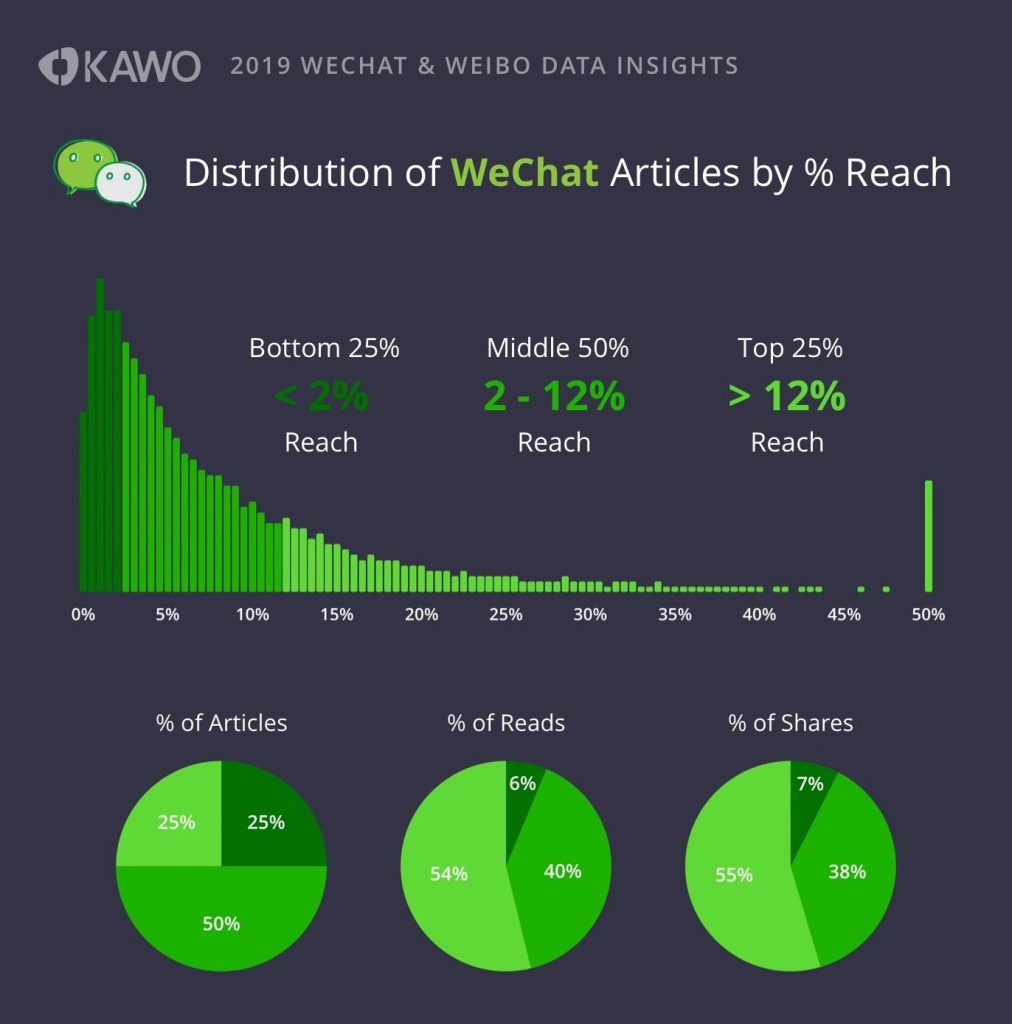
On both networks the top 25% of content delivers the majority of results.
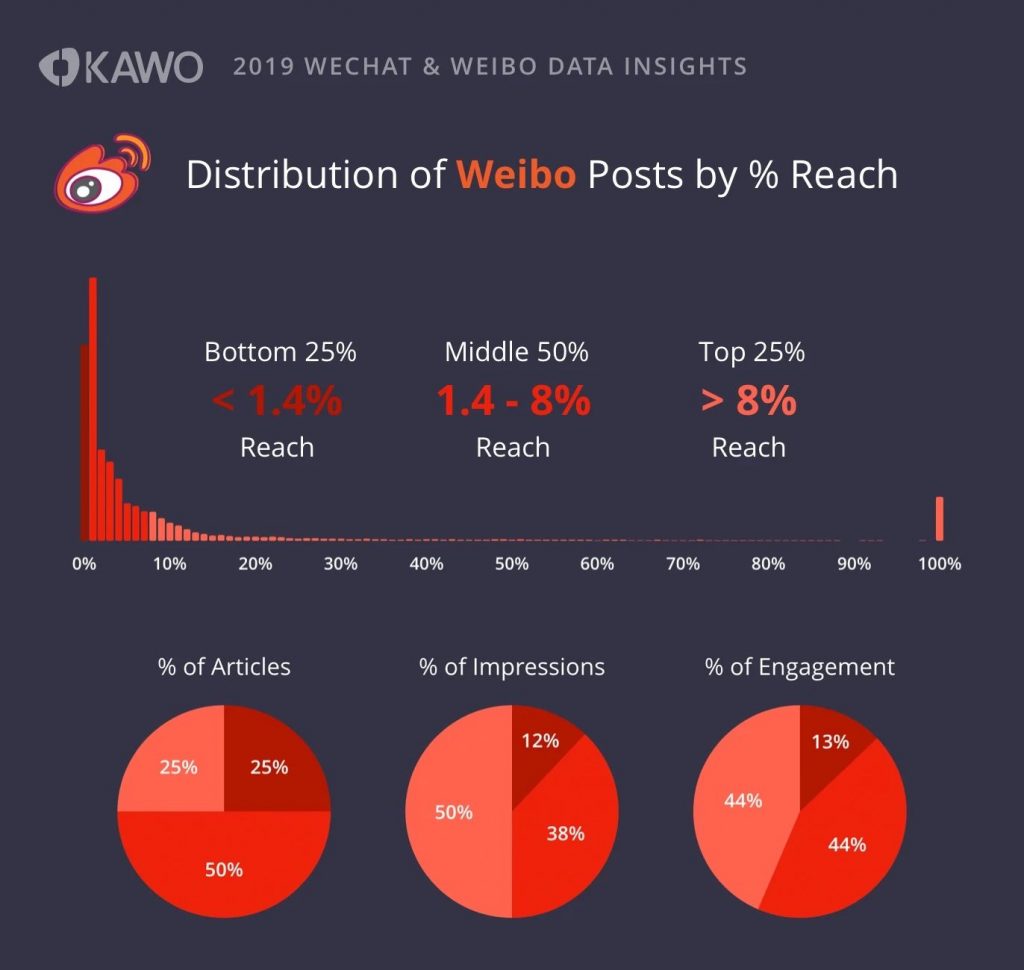
With the potential to spread widely and even go viral, the distribution of content is much wider on Weibo than WeChat.
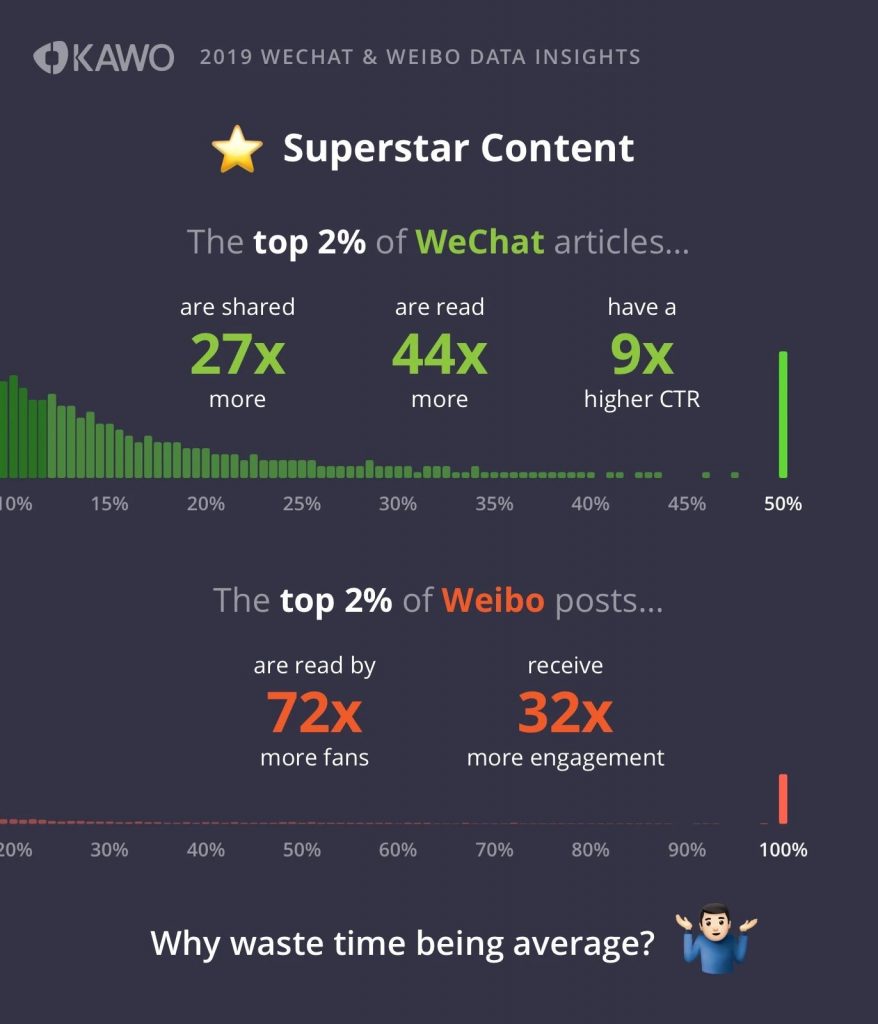
Three Takeaways
- WeChat and Weibo have both become harder places to get results, but the worst of the decline seems to be over.
- For both WeChat and Weibo focusing your efforts on creating great content can deliver real results for your account.
- WeChat followers can easily leave if they don’t like your articles so don’t post sh*tty 💩 content ?







